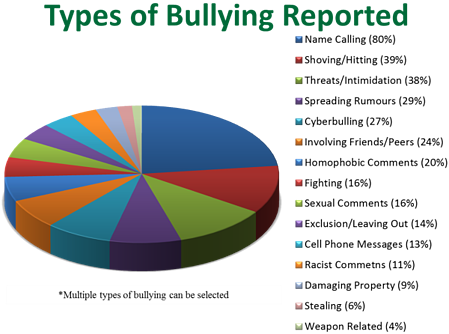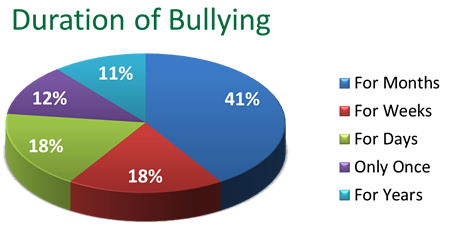
Does it affect life at home, at school or at work?
Take 5 minutes to complete the Warning Signs Checklist and discover whether you or your child could have learning difficulties that are impacting your life, and what to do about it.
Take The Free Warning Signs Checklist!
There is no shortage of opinions and suggestions when it comes to the subject of bullying. The media is flooded with stories of victims and perpetrators and what should have or could have been done. Listen in to a conversation and you will hear things like “That boy should have just fought back” or “If I was that kid’s parent they’d never bully another kid again” and “It’s just kids being kids. Same thing happened back when I was young.” Unfortunately bullying has changed. Sure there’s still someone stealing lunch money, pointing and calling names, swirlies in the toilet and a kid getting a little roughed up in the corner of the school yard, but it’s gone well beyond that.
According to Stop A Bully 27% of bullying is now cyber bullying. One of the reasons cyber bullying is so powerful is that it is often anonymous, allowing people to hide while they attack others. This leaves the victim not only hurt, but not even knowing who is attacking them. The anonymity can be haunting. Perhaps even worse, cyber bullying doesn’t end when you leave the school yard. It follows you home, on your cell phone or computer. The rules have changed.

According to The National Crime Prevention Council, “Although bullying was once considered a rite of passage, parents, educators and community leaders now see bullying as a devastating form of abuse that can have long-term effects on youthful victims, robbing them of self-esteem, isolating them from their peers, causing them to drop out of school and even prompting health problems and suicide.” In the U.S. each month 282,000 students report being attacked at school. Every 30 minutes a teenager attempts suicide due to bullying. (source) This is not something that can be ignored.
Think bullying is just boys being boys? Recently, in my home town, a girl knocked down another girl and stomped on her face. (read about it here)

Bullying isn’t something we can just shrug off or say it makes us stronger. It has lasting implications for victims as individuals and society as a whole. According to Bullying Canada bullying can make “children feel lonely, isolated and unsafe, can make them sick and it can have long-term physical and psychological consequences.” The Social Outcast, a study on bullying done in 2005, reports that bullying can lead to “depression, anxiety, low self-esteem and susceptibility to illness.” Bullying isn’t just a one-time thing, either. With 41% of reported incidents going on for months, and 11% for years.

What’s being done about it? Not enough according to the World Health Organization that ranks Canada 26th and 27th in the categories of bullying and victimization, out of 35 developed countries. (source)
This month our focus is on the many sides of bullying, not just the ones that instantly come to mind but things that are not obvious. Last week we talked about some of the characteristics of the victims of bullies and that victims may sometimes unknowingly attract the bully. Next week we will talk about bullies and some of the less discussed, driving forces behind their behaviours. When specific brainskills are under developed, children’s behaviour is impacted and may lead to them becoming a bully or a victim. But working on ones brainskills can change things. Both bullies and victims can strengthen and develop the areas that will change their situation, and Breakthroughs may be able to help. It is my privilege to work everyday with children on both sides of the problem. How about you? Don’t be a bystander. Get involved today.
*graph data from Stop A Bully
Subscribe to our newsletter and receive regular articles and resources to help you or your child perform better at school, home or work.
suscribe now
Post Your Comment Below